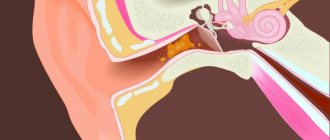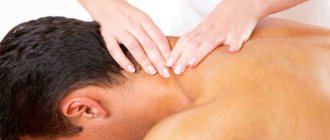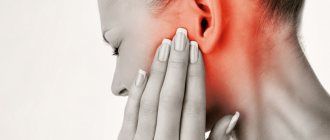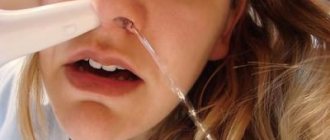How to treat herpes in the intimate area at home is of interest to women and men who have encountered unpleasant manifestations of the most common viral infection. There are types 1 and 2 herpes simplex. The first most often affects the mucous membranes of the lips, mouth, throat and nose, and the second most often affects the genitals. However, type 1 viral disease can also manifest itself as rashes and ulcers in the groin and genitals, causing serious discomfort, itching, pain, which are accompanied by a significant deterioration in human health. For both types of herpes infection, antiviral drugs are indicated and must be taken in a course. Treatment does not get rid of herpes in the intimate area, but it reduces the risk of relapse.
Why does genital herpes get worse?
Exacerbation of herpes infection is difficult to control. The appearance of blisters on the mucous membranes of the genital organs, male or female, is usually associated with herpes-provoking factors that weaken the immune system:
- infectious diseases or exacerbation of chronic conditions;
- hypothermia, overheating, physical overload;
- nervous shocks, prolonged stress;
- unhealthy lifestyle coupled with bad habits, smoking, alcohol abuse;
- unsuitable diet;
- fatigue, which can be caused by lack of sleep.
In women, signs of a viral infection, rashes in the intimate area and itching may appear before and after menstruation. Herpes is also not uncommon in pregnant women. If these are secondary attacks, the disease poses a danger right before birth, because the baby, passing through the birth canal, can become infected and become seriously ill, because he does not have antibodies in his blood that can fight the infection. Primary infection during pregnancy is extremely dangerous for the fetus.
The herpes virus is treated with antiviral drugs, ointments and tablets, but there are also folk, home remedies.
Before engaging in treatment, you should consult a doctor, because herbs and other components that are part of homemade medicines can cause complications, allergies and other undesirable effects.
Causes of blisters on the labia
Blisters in the area of the female labia can appear for various reasons:
- Failure to follow basic rules of personal hygiene, which leads to clogged pores. Thus, blisters appear on the labia due to the inflammatory process in the hair follicle, sweat or sebaceous gland, as well as Bartholin's gland
- If a woman wears tight or constantly constricting underwear, as well as clothes made of synthetic fabrics, which does not allow the skin to breathe. But in such a situation, the skin is exposed only to rashes, and there is no pain or itching
- Weakening of the body's defenses, promiscuity or unprotected sex
- If blisters that appear on the labia of women are accompanied by pain and itching, then, as a rule, genital herpes is diagnosed.
What to consider before using home remedies
To cure herpes in intimate places at home, you can use various remedies, decoctions, tinctures, make lotions and baths, and douche. Before choosing a treatment method or several, it is important to take into account the person’s health status, the presence of other diseases, and pregnancy.
Improper treatment can lead to a weakening of the defenses, and herpes will pop up again and again. In addition, there may be a high probability that a malignant neoplasm will appear in the reproductive system.
You should be careful when using immunomodulator medications, since they can get rid of relapses of herpes infection, but they can also provoke an increase in exacerbations. There are cases when, after taking drugs that stimulate the immune system, the herpes virus began to appear not once a month, but once a week. Therefore, such drugs are prescribed by a doctor after medical tests, immunograms and blood tests.
Antiviral therapy usually includes medications based on interferon and acyclovir. A combination of tablets, ointments, aerosols or suppositories is a good way to cure herpes in the intimate area at the acute stage. A prerequisite for antiherpes treatment is prevention, the purpose of which is to prolong the period of remission.
Causes
Just like with herpes, which appears on the lips, the causes of a rash on intimate places lie in the virus. There are two types of herpes virus. The species, which affects intimate parts, is highly contagious.
You can become infected with herpes in the following ways:
- sexually (both traditional and non-traditional contact);
- by household means - when using someone else’s personal hygiene products (towel, soap, etc.);
perinatal way - during childbirth from mother to child;- by inoculation - transfer of infection to the genitals by hands.
How often the disease relapses depends on the state of the person’s immune system. If immunity is significantly reduced, then the disease can appear a couple of times a month; with stronger immunity, exacerbations of herpes will occur 1-2 times a year.
Decoctions and tinctures for oral administration
Folk remedies for genital herpes include herbal teas from:
- sequences;
- wormwood;
- celandine;
- oregano;
- St. John's wort;
- dandelion;
- tansy;
- chamomile
To prepare a decoction or infusion against herpes in the intimate area, take dry inflorescences, leaves, rhizomes of the plant (or a mixture of herbs) and brew the medicinal raw material with boiling water and infuse for a certain time. Decoctions are used to treat genital herpes at home, taken orally or used to wash rashes and sores.
- 1 tbsp. dry wormwood is brewed in 200 ml of water. Leave for 15 minutes. Wormwood tea is taken 2 tbsp. 3 times a day 30 minutes before meals. The course of treatment with wormwood decoction lasts 2 weeks. It is not recommended for pregnant women.
- 1 tbsp. Brew the strings in a cup of boiling water and let it brew. Drink 0.5 glass before meals three times a day. The decoction has a general strengthening effect and increases appetite.
- Tansy inflorescences (1 tbsp) are poured with boiling water (250 ml). The infusion is filtered after 15 minutes. You should not consume more than half a liter of the product per day, because the plant has a toxic effect on the body.
- You can make an alcohol tincture from chamomile and calendula. Dry inflorescences are mixed in 1:1 proportions and poured with alcohol or vodka at the rate of 1 part of raw material per 10 parts of alcohol. Leave in a dark place for 4 days, strain and store in the refrigerator. Take by diluting 20 drops of the product in a glass of water, twice a day.
- St. John's wort, chamomile flowers, oregano inflorescences are mixed in equal quantities and brewed in a thermos. For 1 liter of water take 3-4 tbsp. medicinal mixture. The finished broth is filtered. The product is taken three times a day, 1/3 cup for a month.
Echinacea tincture, which is also diluted in clean water, is also used for herpes on the pubic area in women. Usually take 15-20 drops of the product per 200 ml of liquid.
Treatment
It is quite difficult to cure genital herpes once and for all. Even if all clinical symptoms of the disease disappear, the virus will remain in the body in nerve cells. If the immune system is weakened, a relapse of the disease is possible.
However, it is possible to achieve stable remission if you choose the optimal treatment regimen for herpes. The following groups of agents can be used for therapy:
- Specific antiviral drugs.
- Immunotropic drugs.
- Local symptomatic remedies.
- General strengthening treatment.
Even after proper therapy, it is necessary to follow some rules of secondary prevention. They will help prevent recurrences of the disease.
Many people are interested in the question: “Is it possible to cure herpes in an intimate place at home?” It is possible, but a preliminary consultation with a doctor is still necessary to select the optimal therapy.
At home, you should not use traditional medicine recipes, but proven, certified medicines. They will help you quickly get rid of the disease.
Antiviral agents
The basis of therapy for herpes on the genitals is the use of specific antiviral agents. When using these drugs, the disease goes away most quickly.
Among this group of drugs the following drugs can be distinguished:
- Acyclovir is one of the most common medications recommended by doctors. The medicine is available under various trade names: Zovirax, Lizavir, Ciclovir, Medovir, Virolex.
- Valaciclovir is a drug similar to acyclovir in its chemical structure and mechanism of action. Produced under the brand name Valtrex.
- Famciclovir is an effective new generation drug, often used when previous drugs are insufficiently effective. Produced under the name Famvir.
Medicines are available in the form of tablets, injections and external agents. The first form is more preferable for genital herpes; in this case, the period of treatment at home will be shortened as much as possible.
Regardless of the route of administration of the drug, its mechanism of action is no different. The antiviral agent disrupts the division processes of viral particles. As a result, the number of pathogenic virions decreases, and the disease gradually passes.
This happens quite quickly, and within 3-4 days there is a significant improvement in the condition. It is difficult to say how long treatment will take for a particular patient. This time can be shortened using additional therapy methods.
Contraindications and side effects
You can use antiviral drugs at home only after reading the instructions for the product. It is important to pay attention to contraindications. Treatment at home without taking into account restrictions on the use of the product can lead to serious consequences.
Among the contraindications for use are the following conditions:
- Allergy to the components of the product.
- Kidney diseases that impair their function.
- History of neurological reactions to cytotoxic drugs.
- Dehydration is dehydration of the body.
- Breastfeeding – you should stop breastfeeding while taking the drug.
During pregnancy, the medicine will have to be used, since the risk to the fetus will be higher if antiviral therapy is not prescribed at all. However, in this case, treatment at home is contraindicated.
The duration of therapy or how many days the drug should be optimally used should be determined by a gynecologist.
Acyclovir and its analogues may cause side effects. When using the medicine at home, pay attention to the following manifestations:
- Nausea and vomiting, abdominal pain.
- Dizziness, impaired consciousness, migraine.
- Sleep disorders.
- Changes in blood pressure.
- Various allergic reactions.
- Pain, burning when used externally.
- Muscle pain, skin sensitivity disorders.
The listed side effects occur extremely rarely. The likelihood of adverse reactions increases with prolonged use, so it is the specialist who decides after how many days the medicine should be discontinued.
Features of application
Methods of using antiviral drugs to treat genital herpes depend on the severity of the disease and the treatment regimen. In the hospital it is possible to use intravenous injections.
At home, tablets and external remedies are most often used. The disease goes away faster with the use of systemic drugs, but it is quite difficult to calculate how many days the drug should be used.
Directions for use of tablets containing acyclovir:
- Use 1 tablet orally several times a day. The doctor will select the exact dosage.
- The tablet should be taken with a small amount of water.
- The course of treatment is continued from 5 to 10 days.
- 5 days after starting treatment, you must consult a doctor to monitor therapy.
External forms - cream and ointment are used in a similar way. For 5–10 days, apply the product to the intimate area several times a day.
If after 5 days no significant changes in well-being are noticed, you should consult your doctor.
Immunotherapy
Can herpes in the intimate area be cured? It is quite difficult to answer this question unambiguously. To reduce the risk of relapse and speed up the treatment process, antiviral therapy should be supplemented with auxiliary agents.
Immunomodulators do not directly affect viral particles, but these drugs affect the ability of the immune system to resist the penetration of pathogens.
There are a large number of drugs of various origins that are classified as immunomodulators and adaptogens. They should be used only after consulting a doctor, since each medicine has its own contraindications and side effects.
Examples of drugs:
- Tonsilgon.
- Poludan.
- Anaferon.
- Arbidol.
- Aktipol.
- Immunomax.
- Immunorm.
- Imudon.
Many doctors and scientists question the effectiveness of drugs in this group. Immunomodulators cannot be used as monotherapy for herpes in the intimate area, however, their use as auxiliary medications is fully justified.
In what quantity and at what time intervals to use this or that medicine is determined by the attending physician.
Local treatment
Symptomatic and pathogenetic treatment using local remedies helps to supplement the treatment regimen for genital herpes. They can be delivered through several types of dosage forms: ointments and gels, as well as topical spray.
One of these drugs is Epigen Intim. The active ingredient of this medicine is ammonium glycyrrhizinate. The product has an anti-inflammatory, regenerating, immunostimulating effect. In addition, Epigen affects the replication process of the virus and suppresses its reproduction.
Among other agents that act locally on the inflammation process, the following are used:
- Panthenol is an aerosol that has a pronounced anti-inflammatory effect.
- Gossypol is a liniment, applied up to 6 times a day to reduce the severity of the inflammatory reaction.
- Oxolinic and tebrofen ointments. They soften the severity of inflammation, relieve pain and relieve tissue swelling.
- Gevisosh ointment contains epervudine. The agent is integrated into the DNA of the virus and prevents its division.
Local remedies, despite the lack of a pronounced systemic effect, can still cause some adverse reactions from various organs. You should especially be wary of allergic reactions. At the first sign of intolerance to the ointment or spray, you should stop using it. You should inform your doctor about intolerance to any drug components so that optimal therapy can be selected.
General restorative therapy
Methods of restorative therapy help improve the condition of the immune system and speed up the healing process. Among them are the following funds:
- Multivitamin complexes - increase the activity of the immune system, prevent the severity of inflammatory reactions, and normalize metabolism.
- Echinacea tincture is a natural remedy that is a natural immunomodulator. Strengthens the body's nonspecific defenses.
- Iron supplements and other microelements normalize metabolism in the body.
- Aloe extract helps support the resistance of the immune system.
Among the vitamins, the best effect on immunity is provided by:
- Vitamin C – ensures tissue regeneration, antihemorrhagic effect, enhances phagocytosis and the production of antibodies against the virus.
- Vitamin P – normalization of metabolism in the epithelium, acceleration of virus elimination.
- B vitamins - normalize metabolism in nerve cells to which the herpes virus is fixed.
- Vitamin E – has an anti-inflammatory effect.
- Vitamin A – stimulates cell growth and regeneration.
Douching
Treatment of genital herpes at home includes the douching procedure. A vaginal irrigation solution can be prepared at home from aloe leaves. Freshly squeezed plant juice is diluted in warm boiled water in a ratio of 1:10. Treatment should be carried out twice a day: in the morning after sleep and in the evening before going to bed.
Treatment of herpes in intimate places can also be carried out with a solution from the mixture:
- wood mallow;
- lavender;
- red clover;
- motherwort;
- dandelion (rhizome);
- licorice (root is used).
For 100 g of herbal mixture, take half a liter of boiling water. The broth is infused in a thermos for 3 hours. Strain thoroughly and douche no more than 3 times every 7 days.
Basic rules of treatment
There are several rules that must be observed when treating herpes in an intimate place. Then the disease will not provoke complications during the acute phase, so there will be no need to use additional techniques.
The rules are as follows:
- From the first days of infection, you should go to the hospital if possible. It is best to begin therapy before the rash appears.
- It is important to pay more attention to immunity, since antiviral agents alone will not be enough. It is necessary to increase the body's resistance to various adverse effects.
- It is imperative to follow a daily routine, eat right and try to avoid colds and other similar diseases.
- If a rash appears, and then ulcers, then you need to wear underwear made exclusively from cotton materials. It does not interfere with skin breathing, so the wounds will heal faster.
During the acute phase of the development of the disease, you should not visit solariums or beaches. Ultraviolet radiation interferes with tissue repair. In addition, immunity may deteriorate.- After visiting the toilet, you should always wash your hands thoroughly using soap. Herpes is quite easily transferred from the genitals to the lips, mucous membranes of the eyes, mouth and other places.
- It is recommended not to touch rashes and sores. Scratching them will only speed up the spread of infection.
- The acute stage lasts approximately 3 weeks. During this time, you need to completely abstain from sexual intercourse. Then you should always use condoms.
All these doctor’s recommendations must be followed. Then the healing process will go much faster.
Lotions and baths
Treatment of herpes in the intimate area with folk remedies is not complete without lotions and medicinal baths. Effective products that are used externally:
- aloe vera (i.e. leaves);
- tea tree oil.
Freshly squeezed aloe juice is soaked in a bandage or gauze and applied to the affected areas, secured and put on clean cotton underwear. The lotion is changed three to four times a day.
Mix 3-4 drops of tea tree essential oil well in a glass of warm water. Moisten gauze or a cotton swab and apply it to the sore spot, fixing the lotion.
You can treat genital herpes at home by taking sitz baths:
- 6 drops of geranium essential oil are dissolved in warm water. The procedure is carried out within a quarter of an hour.
- Dissolve 50 g of sea salt in a liter of hot water, pour the saline solution into the bath, in which they remain for 10-15 minutes.
There are different methods for curing genital herpes at home, but preventing herpes infection also gives good results, prolonging remission.
Ways of transmission of the disease
Herpes in the intimate area in women, photo
The part of the skin that is vulnerable to the virus is the mucous membranes. It is through them that infection occurs with all types of herpes (simple, genital, chickenpox, Epstein-Barr, cytomegalovirus). Herpes simplex virus type 2 (genital) can be transmitted in several ways:
- During sexual intercourse. Moreover, even protected sexual intercourse does not guarantee that infection will not occur. The virus can penetrate through the pores of the condom, and also enter the mucous membrane of an uninfected partner when it comes into contact with the pubic area of the carrier of the infection.
- During childbirth. The baby’s genitals, lips and sinuses have direct contact with the mucous membrane of the mother’s vagina and labia minora, so in most cases a virus becomes infected, which can have serious consequences for the child’s health.
- By everyday means. This is a rare type of transmission of infection, but it cannot be excluded in cases where wet personal hygiene items of an infected person are used.
Causes of herpes in women
A completely healthy person can resist a viral attack even through direct contact with an infected person. But if the body is weakened, then herpes in the intimate area can appear for several reasons:
- Surgical interventions affecting the uterus and cervix (caesarean section, abortion, diagnostic curettage)
- General decrease in immunity over a long period of time
- Presence of diseases that are transmitted through sexual contact
In addition, doctors note that genital herpes is predominantly a female disease. The reason for this dependence of the virus on gender is probably that female genital organs have a larger area of mucous membranes than male ones.
Important signs of infection
Doctors identify several common symptoms of herpes in the intimate area in women:
- The presence of blisters with clear or bloody fluid on the mucous membranes of the genital organs, as well as on the lips, tongue and eyes.
- Decreased appetite
- The presence of ulcers on the genitals that cause a strong burning sensation
- Temperature increase
- Enlarged inguinal lymph nodes
- The mucous membranes of the vagina and labia minora have a bright red color, swelling and pain when touched.
There are two forms of the genital herpes virus, each of which is characterized by its own symptoms, clinical picture and severity.
Primary herpes
- suggests the presence of bubbles on the vaginal mucosa, and then ulcers. They cause burning and itching, but disappear within 2 – 2.5 weeks. Inflamed areas of the skin react painfully to the contact of urine, soapy water, and alcohol-based products on their surface.
Recurrent herpes
– the starting point for it is the primary form of the disease. If adequate treatment has not been carried out for it, and also if a person’s immunity is weakened, then primary herpes (in 50% of cases) turns into a recurrent form.
It can have periods of exacerbation and remission, is difficult to treat and causes severe pain during rashes, which not only cause discomfort, but also interfere with full movement, sitting, taking hygiene procedures, etc.
Preventive measures
Simple rules help to avoid relapse of the disease. A person who periodically experiences exacerbation of herpes on the genitals should:
- Take vitamin complexes, especially in winter and spring.
- Lead a healthy lifestyle.
- Temper the body. It's important not to overdo it here. Hardening must be approached responsibly, without fanaticism, otherwise there is a risk of achieving the opposite effect.
- Review your daily diet and include healthy foods in your menu.
- Avoid spicy, fatty foods, alcohol, coffee.
- Quit smoking.
- Spend more time outdoors.
- Avoid stressful situations.
At the first signs of herpes, you should visit a doctor, and if relapses of infection in the intimate area become more frequent, undergo the appropriate course of treatment prescribed by the doctor.
In the cavity of internal organs
Herpes simplex virus type 2 can affect not only the external genitalia of a woman, but also the internal cavity. Particularly typical is inflammation of the inner lining of the vaginal wall - herpetic vaginitis.
This disease is associated with the development of the following characteristic symptoms:
- The process may initially be localized in the area of the external genitalia and spread into the vaginal cavity. In case of sexual infection with the virus, the first manifestations may immediately appear in the organ cavity.
- Typical rashes and blisters with transparent contents may not attract attention for a long time, since they are located inside the vagina.
- Herpes is accompanied by severe itching in the intimate area, and sometimes pain occurs in the lower abdomen.
- The amount of discharge increases, usually it is serous - transparent and has no characteristic odor. A change in the nature of the discharge indicates the addition of microbial flora.
- Swelling of surrounding tissues can cause symptoms such as pain during urination and sexual intercourse. This should alert the woman and become a signal to see a doctor.
Unfortunately, not every case of infection has a characteristic clinical picture. In this case, the diagnostic search becomes more difficult, which can lead to the development of complications of the disease.
Prevention of diseases in the genital area in women
Modern medicine does not have the means to help protect a person from genital herpes during sexual intercourse. But if you take some precautions, you can significantly reduce the likelihood of contracting this disease.
- You can protect yourself during sexual intercourse by using high-quality condoms
- Casual sexual contacts with unfamiliar partners should be avoided
- Adhere to personal hygiene rules, using only individual products
- Don't have oral sex
- Strengthen your immune system by taking vitamins, doing physical exercise, and organizing proper active rest.
- If there are any signs of the development of genital herpes, you should consult a doctor and not self-medicate
If immediately after sexual intercourse you find out that your partner has a herpes virus, you can use the drug Panavir Intim, which kills this virus.












